It certainly says something when the innovation I’ll remember most from a film festival didn’t occur on the screen.
I can already hear the world’s tiniest violin strumming for me. “Oh, you poor thing, you got to go to Italy, see world premieres, eat great food, and hang out with friends? My heart bleeds for you.” But I’ll be honest, it was a weird and slightly underwhelming festival year. In many ways, Nicole Kidman delivering career-best work in Babygirl that won her a Best Actress prize from the festival only to learn that her mother died suddenly hours before the ceremony felt like an exaggerated version of the Venice experience in 2024.
One of my flatmates had a grand unifying theory of our woes: it was the heat and humidity, so oppressive that Variety even wrote a whole article about it. Everyone packed into indoor or shaded areas, making everything feel more crowded. Even things like the outdoor water spigots had long lines! Everything just seemed downstream from a stream of small, sweaty indignities. At one point, I did use my battery-powered hand fan (the best $15 you’ll ever spend) to spot-dry my dress shirt on the way to an event.
But more likely, it was just the largely underwhelming crop of films from an industry that’s still in a bit of a supply-side funk following the dual Hollywood strikes of 2023. Some major players like Neon, MUBI, and Netflix (at least before they acquired Maria) also just sat out the festival altogether. Maybe Venice will never reach the delirious highs of the post-COVID festival in 2021 where I saw half of my top 10 list in just over a week (plus made lifelong friends, too) and I just need to make peace with that.
As with any festival, though, there’s always some selection bias at play. Especially whenever my primary mission at a film festival is providing review coverage, my schedule is always at the mercy of my assignments. This year, I felt limited by editorial interest that resided in primarily English-language fare with major stars attached. Because I’ve grown increasingly aware of tending to my own sanity (and filing my pieces in a timely fashion), I just saw less than I usually did as a result.
Indulge me in a little bit of inside baseball, too, but a much higher proportion of the big festivals were pre-screened in big cities ahead of their premieres. This reduces opportunities for many freelancers like myself to cover them. There’s a bit of sadness in wondering whether a future of attending this beautiful festival will remain viable for many of us as opportunities continue to cluster among fewer people. I’m not alone in feeling the pinch — a letter from an international freelance press corps made waves because it slammed the studios and publicists for withholding the access they need to justify their coverage.
Don’t get me wrong — there were many highlights of this year’s Venice Film Festival, and I can’t wait until we can discuss them in greater depth. My clear standout was Brady Corbet’s The Brutalist, which A24 announced their acquisition of today. I am still working on my review of it for Slant Magazine, so I’m cautious not to say anything here I might want to use in that piece. I’m not quite at the point of dropping the M-word (masterpiece), though my flatmate Hannah Strong did go there in her review. This three-and-a-half-hour epic of post-war America as seen through a Hungarian immigrant architect is the kind of magisterial drama that these festivals are all about.
I also adored Halina Reijn’s Babygirl, somewhat surprisingly since I really did not care for her prior film Bodies Bodies Bodies. My review just went up for Slant Magazine yesterday, and I’m particularly proud of the genre angle I found that wasn’t just an erotic thriller — which this romance between Kidman’s She-EO and her intern (played by an electrifying Harris Dickinson) most visibly resembles. I’m going to enjoy this period of praise for the movie before it’s inevitably swamped by age gap discourse this fall.
But beyond this top two — OK, and Alex Ross Perry’s delirious entertaining docu-fiction music film Pavements (review for The Playlist) — it was a lot of “good, not great” fare. At least there was only one thing that I really loathed, Harmony Korine’s Baby Invasion (review for Decider). How the mighty have fallen from my beloved Spring Breakers.
I’ll give Korine this, though. He was trying something and unafraid of it failing with his video game-inspired first-person shooter game where home robbers have augmented reality faces of babies. Risks were fairly limited and still stayed within recognizable frameworks, from Pedro Almodóvar working in the English language for the first time with The Room Next Door (the Golden Lion winner, which I reviewed for Slant) to Todd Phillips utilizing musical numbers as a form of expression in Joker: Folie à Deux (review for Decider).
I found a lot of this year’s films played incredibly safe or played out of a familiar playbook with diminishing results. Strangely enough, one of the few directors who managed to avoid this creative funk was Tim Burton with Beetlejuice Beetlejuice (review for The Playlist). After two decades of wandering in the wilderness making impersonal studio dreck, Burton beat the odds by making something that felt personal and meaningful by returning to the well of his first major hit. These legacyquels are usually shameless cash grabs where ambition and artistry go to die, yet he improbably made something that felt alive in a way his work hasn’t in a long time.
But more often than not, that was a recipe for an experience I could fairly quickly shrug off. Be that Justin Kurzel intellectualizing violence in The Order (review for Slant), Pablo Larraín insisting a great woman of the 20th century was woefully misunderstood in Maria (review for Decider), or Alfonso Cuarón being so obsessed with technological wizardry that he sanitizes the humanity out of his work in the Apple TV+ miniseries Disclaimer (review for Decider), many directors just felt predictable.
Some just delivered what felt like middling work, be it Kiyoshi Kurosawa’s thrilling but empty thriller Cloud, Athina Rachel Tsangari’s overloaded satire-cum-political drama Harvest (review for The Playlist) or Walter Salles’ leaden political drama I’m Still Here (review for The Playlist). Wolfs (review for Decider), which seemingly only made the Venice lineup so stars George Clooney and Brad Pitt could class up the joint with old-school movie star charisma, felt a bit like asking two brilliant actors to read a ChatGPT-generated script that was trained on the Oceans’ series.
And the documentaries I saw, from Errol Morris’ family separation policy exposé Separated to Petra Costa’s Brazilian democratic crisis reflection Apocalypse in the Tropics, were clear-eyed about what happened in the past but somewhat blinkered on what they wanted viewers to take into the future. While Riefenstahl was a fairly standard archival documentary about the controversial German filmmaker who collaborated closely with the Third Reich, it grappled interestingly with the thorniness of its subject in ways that resisted easy categorization. It made me hope that someone will adapt this into a great narrative work because she’s a juicy character into which a gifted actress with moral ambiguity can sink their teeth.
A select few films did manage to surprise me by breaking out of expected forms, like Asif Kapadia’s docufiction 2073 (review for The Playlist) and Luca Guadagnino’s adaptation of the William S. Burroughs novel Queer (review for The Playlist). I liked and respected them both, even if I wasn’t entirely sure how successful their deviations from convention were. Especially with Queer, a second viewing feels necessary before making up my mind on it for sure. If ever there was a movie ill-suited to turning around a review in two hours, it was that one.
As mentioned, I didn’t get to see quite as many international titles this year, and the one clear gem was Dea Kulumbegashvili’s April. Again, a review is forthcoming for Slant Magazine so I’ll be brief, but it’s the rare character drama that can work on both a moral and metaphysical level. Argentinian filmmaker Luis Ortega’s Kill the Jockey and Japanese director Neo Sora’s Happyend both had their moments, but I look forward to what each man makes down the road.
The rare moments I did get to watch small dramas in the sidebars — Tim Fehlbaum’s gripping newsroom thriller September 5, Sarah Friedland’s intimate dementia drama Familiar Touch — I found myself wishing I had the time to go scout the titles outside the spotlight that could use my discovery. Guess there’s always next year!
Yours in service and cinema,
Marshall


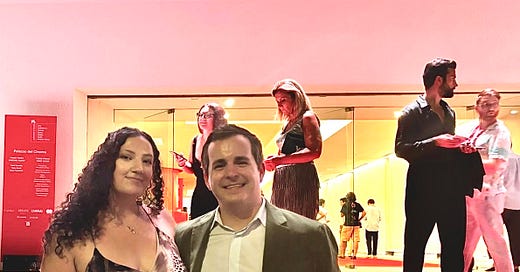


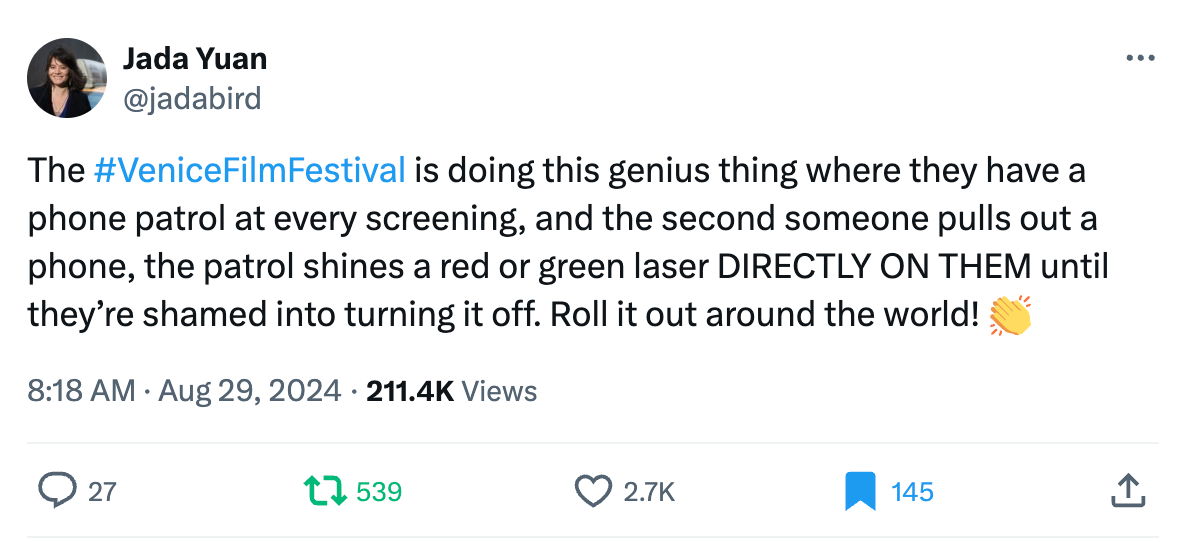




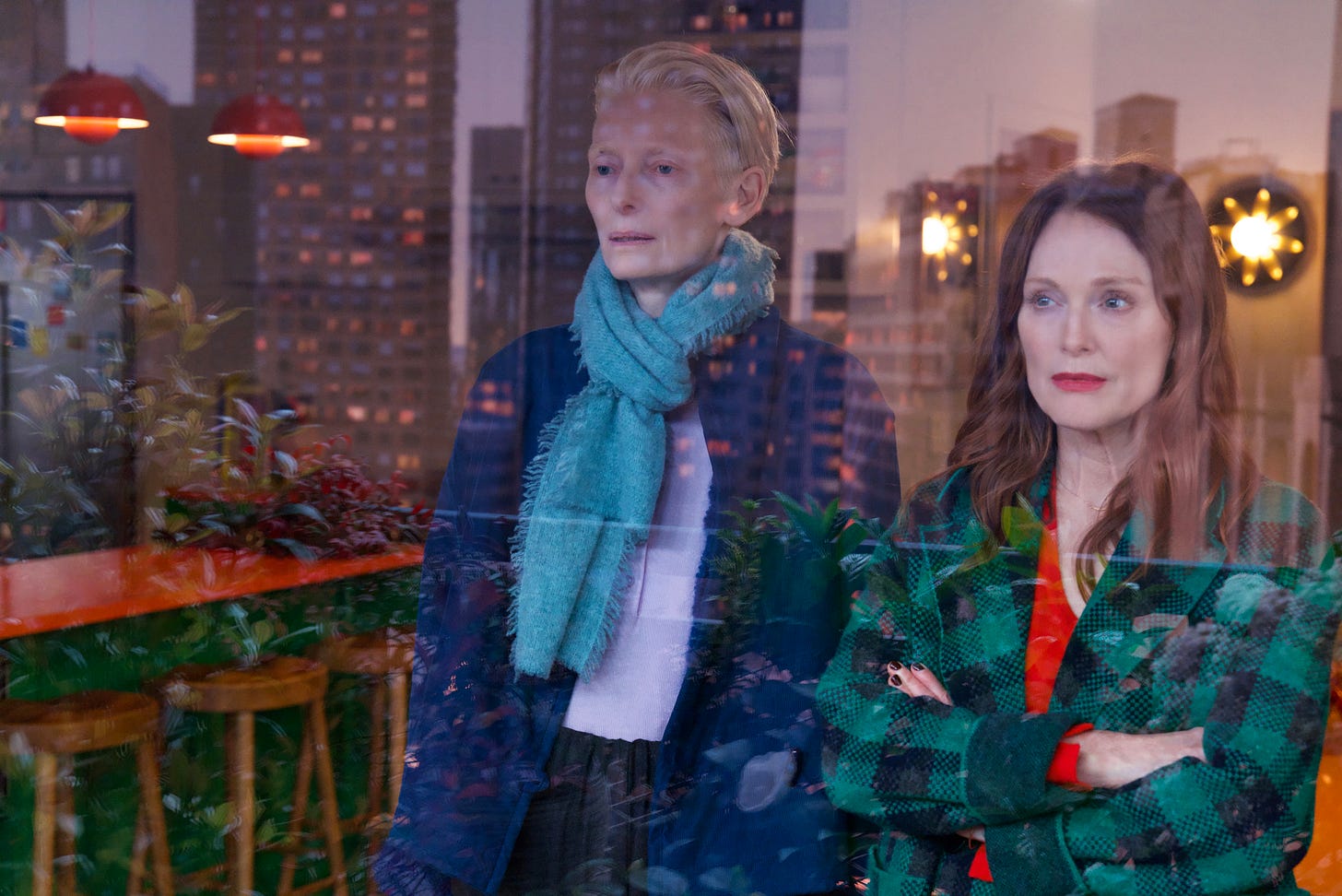
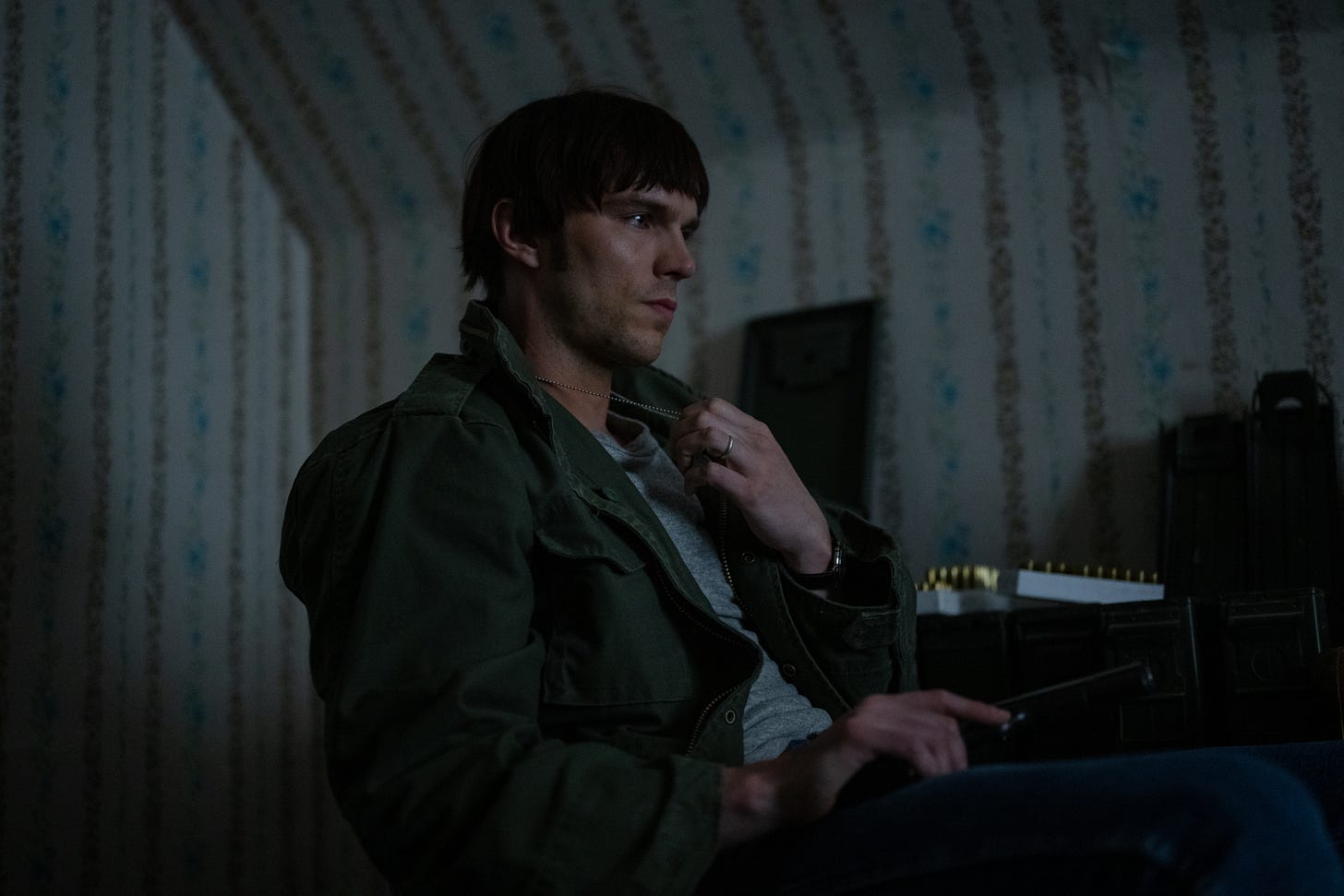
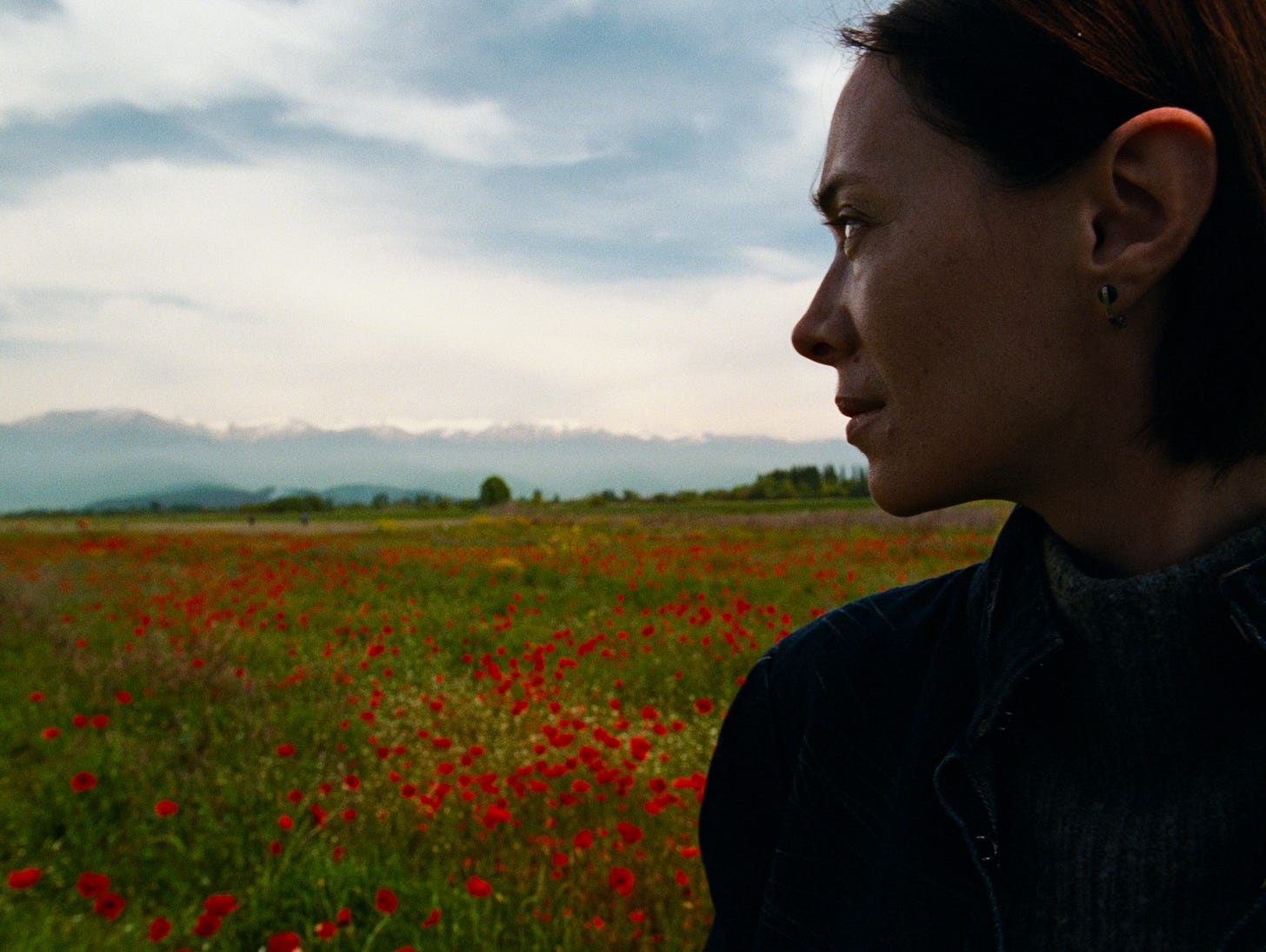

Nice round up. Thanks!